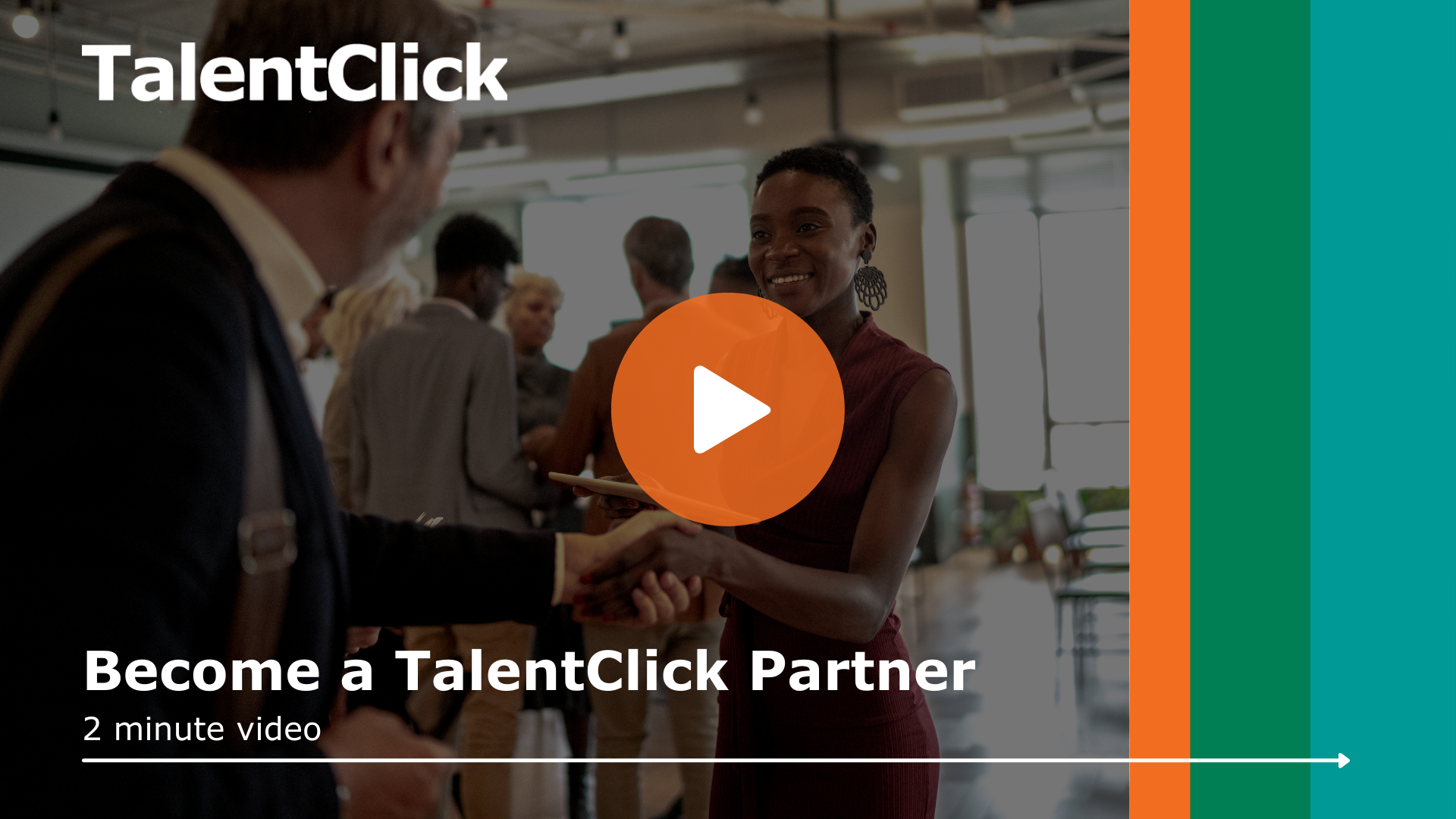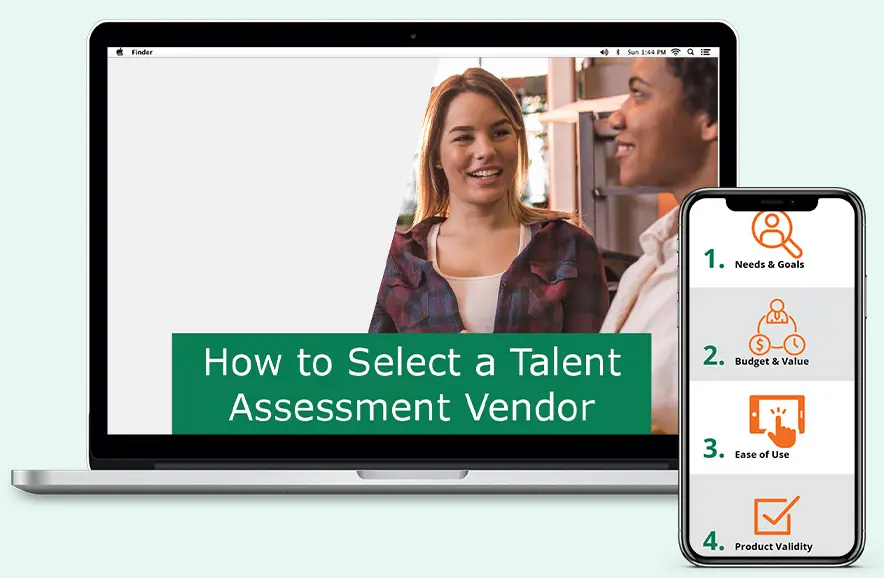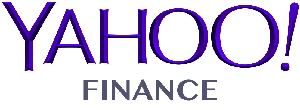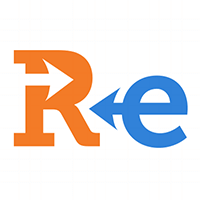The evolution of artificial intelligence (AI) has reshaped recruitment and hiring processes. Through technologies like machine learning and natural language processing (NLP), AI has streamlined candidate sourcing, screening, and selection processes. Its automation of repetitive tasks not only boosts an organization’s hiring efficiency but also saves time and resources for human resource (HR) professionals. It can assist in identifying top talent by analyzing large amounts of data to improve candidate matches and reduce unconscious biases in the recruitment process. And, the latest AI-driven tools even help hiring managers craft compelling job descriptions and optimize candidate engagement.
However, with these advancements, the utilization of AI in hiring tools and processes requires strict compliance with both legal and ethical standards. TalentClick, a global leader in employee assessments and workforce technologies, employs a transparent approach to our use of AI. We do not recommend basing individual recruiting or hiring decisions solely on any ‘AI hiring tool,’ such as rejecting an applicant based on an AI-generated recommendation. Instead, TalentClick leverages the power of AI for data analysis and benchmarking to quickly and accurately process large amounts of data, improving the effectiveness of our assessments and tools.
”AI has proven to be an effective way for us to use its power and efficiency to quickly analyze data and suggest recommendations for adjustments that we can review and test for appropriateness before implementing. AI is our ‘research assistant’ rather than our ‘decision maker’. This way we can improve the accuracy of our assessment tools while ensuring we’re not introducing additional biases into the system.” — Stephen Race, Chief Product Officer at TalentClick Workforce Technologies |
The Importance of Responsible AI Usage in Hiring
While these advancements are changing the industry, they leave unanswered questions about their accuracy and the ethical and legal implications that they introduce.
Legal Implications
The use of AI in hiring and recruitment has legal implications that organizations must navigate carefully. One key aspect revolves around mitigating bias and discrimination within AI algorithms, ensuring they don’t perpetuate biases tied to race, gender, age, or other protected characteristics present in historical data. Organizations must comply with anti-discrimination laws, and continually monitor and test AI systems to prevent biased outcomes. Additionally, safeguarding candidate data in line with data protection laws is imperative to address concerns about data privacy and security associated with AI-powered tools handling applicant information.
Transparency and accountability of AI usage in hiring processes are also the law in some areas. In Ontario, New York, and several other states, organizations must openly disclose their use of AI, informing applicants about AI’s role in the selection process. Adhering to existing employment laws and regulations is crucial, ensuring fairness and equal opportunity for all candidates, and avoiding potential legal repercussions such as discrimination lawsuits or penalties.
Ethical Considerations
With nearly 1 in 4 organizations using automation and/or AI to support HR-related activities, leaders must also consider the ethical aspects of using AI. Establishing systems, accountability and oversight mechanisms for AI-driven decisions is essential to ensure accuracy, fairness, and adherence to ethical guidelines. This accountability includes monitoring AI tools for biases, transparency, safeguarding privacy, and carefully managing applicant data.
Further, while AI offers efficiency and time savings in this field, maintaining a human-centric approach to hiring remains imperative. Balancing AI’s role with human judgment and empathy is essential to preserve the human touch in recruitment and address nuanced aspects that AI might overlook.
TalentClick’s Responsible Usage of AI
At TalentClick, we ensure our AI practices align with legal standards by strictly adhering to employment laws and regulations, and compliance with data protection norms. By prioritizing adherence to employment laws and respecting data protection regulations, TalentClick guarantees that our AI utilization in hiring remains legally compliant and respects the privacy rights of individuals.
From an ethical standpoint, TalentClick uses responsible AI practices, ensuring our AI tools circumvent biases and discrimination. By prioritizing fairness and responsible AI utilization, we aim to employ AI for data analysis and ‘Ideal Profile’ benchmarking, offering objective and equitable assessments that assist organizations in upholding ethical principles throughout the hiring process.
TalentClick’s Policies for AI Usage with ‘Ideal Profile’ Benchmarking and Data Analyses
TalentClick’s strategy involves harnessing AI capabilities for conducting data analysis and creating ‘Ideal Profile’ benchmarks. We utilize AI to understand and analyze the extensive data it gathers, aiming to improve the efficiency of our assessments. By employing AI techniques, specifically machine learning, TalentClick determines ideal score profiles tailored to the competencies of specific job roles across organizations.
Machine learning, an application of AI, uses mathematical models of data to help a system learn without direct instruction, thus reducing the risk of bias. This enables a system to continue learning and improving independently, based on experience and additional data. TalentClick uses supervised machine learning techniques to quickly and efficiently test hundreds of thousands of benchmark score range combinations to see which traits most accurately predict job performance, tenure, safety incidents, terminations and attendance.
Talentclick’s Stance on Artificial Intelligence and Its Benefit to Organizations
Governments have begun scrutinizing employers for their use of automated technologies to hire workers. In May 2022 the U.S. Equal Employment Opportunity Commission issued statements alerting Americans to the potential for AI tools to discriminate against job applicants with disabilities. In October 2022, the White House released a blueprint for an AI Bill of Rights aimed at “guiding the design, use, and deployment of automated systems,” encompassing hiring practices. Further, a new law in New York City prohibits employers from using automated employment decision technology unless it has been subject to a “bias audit,” and similar legislation has been proposed in Washington, D.C., and California.
| Bias can get introduced in the sourcing, screening, selection and offer phases of the hiring pipeline. For example: The Screening Phase Resume analytics or chat applications may use certain information to weed out potential candidates that may also be indirectly associated with a protected class. They may look for characteristics the algorithm associates with productivity or success, such as gaps between jobs. Other tools may analyze how candidates perform in a video interview, which may amplify bias toward specific cultural groups. Examples include sports that are more often played by particular sexes and races or extracurricular activities more often undertaken by the wealthy. Source |
With this understanding and our vision of ‘safer, happier, and more effective workplaces,’ TalentClick advises clients against basing individual hiring decisions solely on ‘AI hiring tools.’ Significant legal risks arise from potential bias in these tools, which could adversely impact disadvantaged groups. And, privacy concerns emerge if the AI tool utilizes personal data from non-employment sources.
While AI benefits hiring processes by improving efficiency, enhancing accuracy in candidate screening, and improving the candidate’s application experience, TalentClick uses AI-driven data to enhance the efficiency of our assessments, gaining in-depth, objective, reliable, and accurate information about candidates that are not showcased by AI and GAI.
TalentClick’s Commitment to AI Usage
TalentClick’s ethical adoption of AI has improved our assessments by leveraging machine learning and data analysis. While the use of AI-driven tools in HR has been shown to enhance candidate sourcing, screening, and selection, strict compliance with legal and ethical standards is essential.
TalentClick adheres to employment laws, ensuring data protection and non-discriminatory assessments. Upholding ethical AI principles we prioritize fairness, accountability, and transparency. TalentClick’s thoughtful use of AI to improve employee assessments and avoid sole reliance on AI recommendations for hiring decisions is aligned with emerging legal scrutiny surrounding automated hiring practices.










